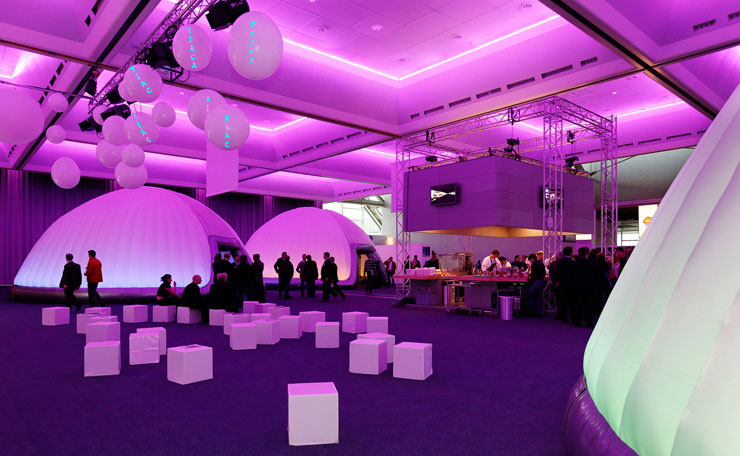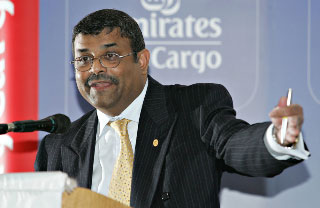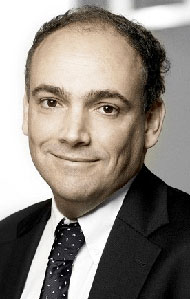TIACA Takes Off In AMS

The aims are high-flying: streamline customs
procedures worldwide, establish industry-government partnerships, reduce
border impediments to speed up the supply chain, set international security
standards, push E-Freight further ahead, and, and, and… These and
many other heavyweight topics will undoubtedly swirl through the air during
TIACA’s upcoming 25th International Air Cargo Forum & Exposition
in Amsterdam. It would be fantastic for any of the above mentioned goals
to gain additional momentum or even find fruition after TIACA has shut
its doors, but experience tells us to retain a healthy bit of doubt.
Why should Amsterdam accomplish what Bilbao
or Calgary, to mention only two AFC gatherings, has failed to do? Has
any TIACA changed anything of the enormous royalty fees imposed by Russia
on European carriers for crossing Siberian air space, although according
to the Chicago Convention the tariff is completely illegal? No visible
attempt or result yet.
The same goes for the large number of countries
that have granted hidden subsidiaries to carriers in order to foster their
airlines’ distortion of global competition. Or the monopolies at
many airports for protecting expensive and ill-working national “service”
providers. There are still far too many despite all efforts by carriers
and forwarding agents to liberalize aviation in general, and the cargo
business specifically, on a global scale.
Not to be unfair, most of these foul plays
can only be abolished step by step if governments are willing to take
action and sign bilateral or, even better, international treaties for
establishing a level playing field in aviation.
Being an aggregate of dozens of different
interests, TIACA can only support such aims and proclaim common goals
for driving the cargo industry forward. Because of the multitude of interests
covered by the broad TIACA umbrella, nobody should expect miracles from
the Amsterdam show. After all, this club is kind of a United Nations for
the cargo industry; hence a coalition of grand compromises based on the
lowest common denominator.
Then why in the world should Amsterdam-held
AFC be “the event you can’t afford to miss!” as organizers
officially proclaimed. “It’s the biz, stupid,“ Bill
Clinton might say. That, presumably, is the core trigger for the more
than 3,000 participants and over 250 exhibitors expecting to capitalize
on the show by getting new business.
We spoke to some industry people to get
their opinions. Commercial Director Mark Grinsted of GSA Globe Air Cargo
bluntly put it this way: “We intend to establish new contacts with
potential airline clients and deepen existing ties.” He surely speaks
for the silent majority that might attend a session or panel here and
there, but mainly attends, to legitimize their presence, to network and
establish new economic ties that pay off after Amsterdam is done.
“Networking” is the main attraction
that led to Swiss WorldCargo’s head of air freight Oliver Evans’
decision to attend the AFC. “This event offers an attractive wide
mix of industry stakeholders,” he said. As example he points to
the participation of FIATA that will deliver the forwarder’s perspective
on issues like real-time shipment information, regulatory changes, innovative
supply chain management, and the mounting pressure to deliver greater
cost efficiencies.
 Ram
Menen, VP of Emirates SkyCargo, emphasized that this group will “truly
[be] a representation of all elements of our industry coming together
to create a new norm/harmony for tomorrow. It is a great networking opportunity,
especially for the survivors of the ‘perfect storm.’” Ram
Menen, VP of Emirates SkyCargo, emphasized that this group will “truly
[be] a representation of all elements of our industry coming together
to create a new norm/harmony for tomorrow. It is a great networking opportunity,
especially for the survivors of the ‘perfect storm.’”
But Mr. Menen ensures that it is not just
about networking: “Environmental issues are also on the agenda as
come 2012, the industry could be in for some surprises!”
The European Shippers’ Council and
the Dutch Shippers’ Council, two track sessions on November 4th,
which will debate the role of shippers in today’s air freight market,
should also  be
enlightening. To get forwarding agents and especially shippers to join
the event is a major attraction of this year’s ACF, states Evans. be
enlightening. To get forwarding agents and especially shippers to join
the event is a major attraction of this year’s ACF, states Evans.
Menen agrees: “TIACA can really shine in creating transparent and
better communication inter-alia amongst all entities within the supply
chain and the logistics to optimize operational productivity and achieve
better cost efficiencies for all concerned.”
Amsterdam being a mainstream cargo hub seems
to be a good pick by TIACA. “Amsterdam definitely is the right location
as it is a major cargo hub and very easy to get to. Infrastructure-wise,
it has one of the best cargo distribution capabilities in Europe. The
challenge with Bilbao was that it was off the trunk route and a difficult
place to access,” said Ram Menen, referring to a past TIACA that
took place in Bilbao, Spain.
Far better than remote locations, agrees
forwarding agent Damco’s CEO, Rolf Habben Jansen, (left) locations
that had been chosen by TIACA more than once in the past, although they
were difficult to attend for the participants. During a roundtable talk
on November 2nd, the Danish forwarding agent will reveal the basics of
the company’s new air freight strategy.
Heiner Siegmund
|



